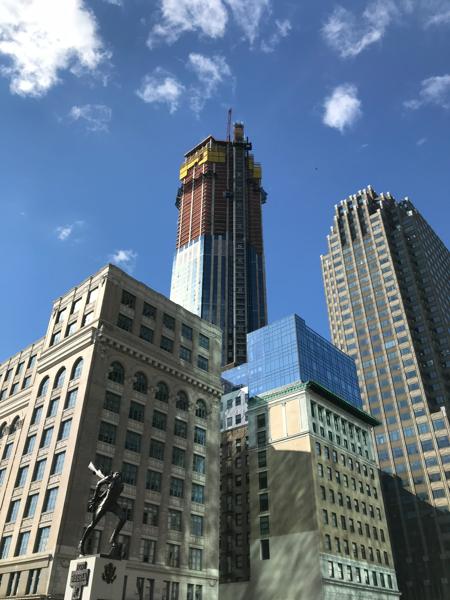ReferenzenGreenwich Village on Coolhaven,
Greenwich Village on Coolhaven,
Rotterdam,
Netherlands
Greenwich Village on Coolhaven
Very recently, the new Little C building project was completed. Fifteen impressive buildings with New York-style architecture adorn the Rotterdam waterfront near the Euromast. Residential towers bring architectural challenges, including increased pressure on the pipes. Nathan came up with a cost-effective solution.
Location
Rotterdam, Netherlands
Fertigstellung
2021
Gebäudetyp
Mehrfamilienhaus
Product systems
Flächenheizung und -kühlung, Flexible Rohrsysteme, Prefabricated systems, Manifolds
Art des Projekts
Neubau
The collaboration
Nathan Sales Manager Bas Drost and Jeroen Verschuuren, project manager at Terberg, worked closely together for the realisation of underfloor heating at Little C. No fewer than fifteen towers containing offices, lofts, flats and catering establishments were built with energy efficiency in mind. The first intensive contact about underfloor heating between Terberg and Nathan can be traced back to a wholesale event a few years ago. Bas: ‘’I was giving a presentation and Jeroen was one of the interested parties. We got talking and at some point the subject came to floor heating. Immediately we saw joint opportunities, of which Little C was one. From then on, the cooperation intensified. One big advantage is that Terberg can buy cheaper through a purchasing association and through Nathan they can use our installation team from A1 assembly.’During the preparations, Nathan ensured that potential errors were recognised in advance by using a 3D drawing instead of a 2D drawing. Jeroen: ‘’Because Nathan's drawing office drew Little C's underfloor heating in Revit, we found out prematurely that the kitchen unit was over the underfloor heating. Traditionally, people work with AutoCAD or another 2D programme but you notice that with a 3D programme everything is woven into one model. As a result, error margins are minimal.‘’
The right solution for the Rotterdam residential towers
One issue was using the right pipes for the new-build project. For every ten metres you ascend, the pressure goes up by one bar. As the buildings are quite high, you have to deal with higher installation pressures. Bas: ‘’It was a requirement that the pipe had to be able to withstand ten bars because there is also district heating. The regular pipe, Comfort Pipe Plus, is suitable for six bars. So we couldn't use that one. The choice was between Uponor's Radi Pipe or a multilayer pipe. The latter is expensive and does not lay finely for an underfloor heating system. As a result, Radi Pipe was chosen for this project. This is new on the Dutch market and has since been successfully applied in a number of projects. It will soon also be permanently included in Uponor's product range. Furthermore, Uponor's Smatrix post controls and Komfort manifolds are present in this project.’
We use Uponor Radi Pipe. That is new on the Dutch market.

